These Popular Grocery Items Contain Harmful Chemicals in Their Packaging, New Report Finds
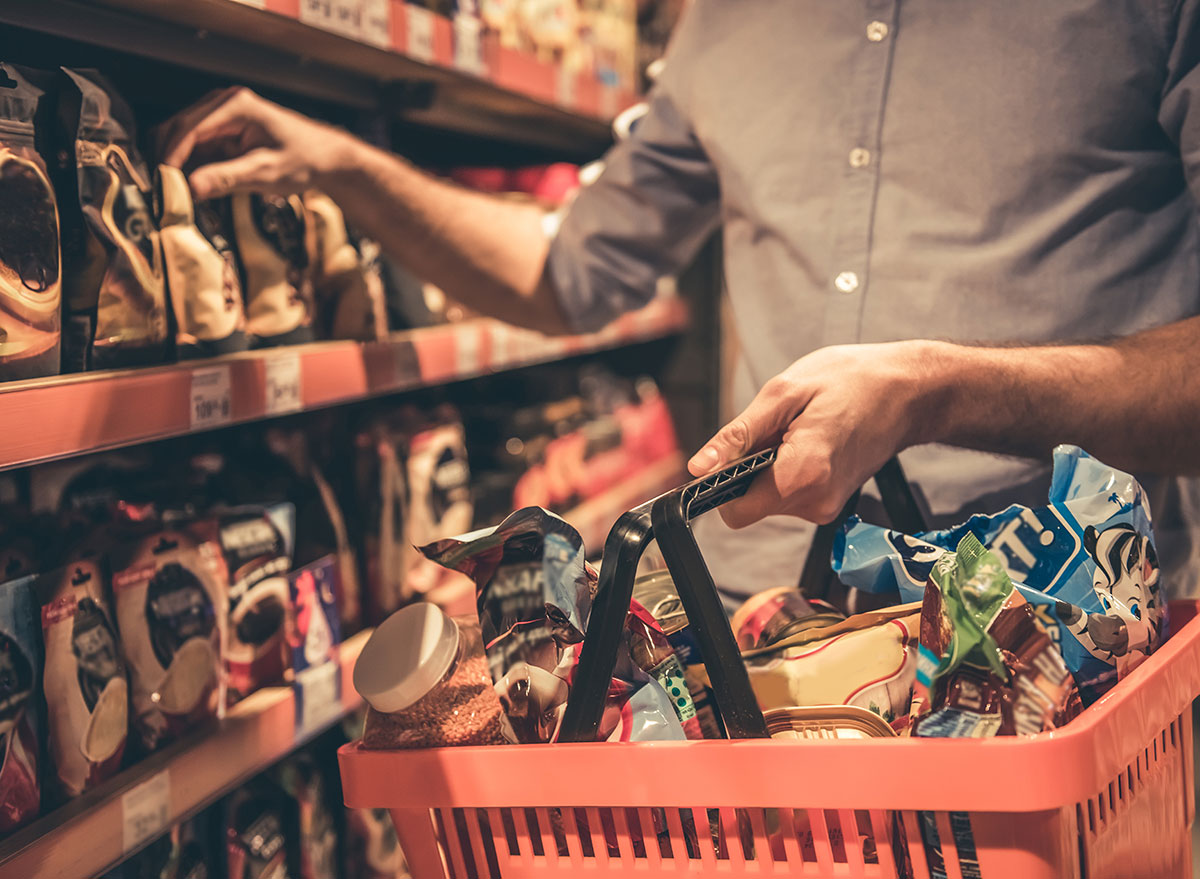
There are lots of resources out there that tell grocery shoppers what’s healthy and what isn’t in stores. But a new report details a problem that has nothing to do with the food itself but can be extremely harmful to your health.
Consumer Reports recently released the findings after reviewing packaging from beloved fast-food chains and grocery stores. The report shows McDonald’s, Chick-fil-A, Cava, Arby’s, and more restaurants as well as some supermarket items have packaging that contains over 100 parts per million (ppm) of per- and polyfluoroalkyl substances (PFAS). These “forever chemicals” as they are called, “can be found not only in nonstick pans and waterproof gear but also in the grease-resistant packaging that holds your food from takeout chains and supermarkets,” Consumer Reports says. “Packaging made with PFAS often resembles paper or cardboard—a seemingly virtuous alternative to plastic—but salad dressing and fry oil do not leak through.”
The report says that questions have been raised in the last few decades about the safety of these chemicals, as they have been linked to immune system suppression, lower birth weight, cancer, among other things. They can spread from packaging to food and then into your system when the food is consumed, but even after it is thrown away, the chemicals can get into the water supply or soil via landfills leading to more contamination.
Consumer Reports says that to find out how often PFAS are used in common food wrapping, it tested 100 products not only from fast-food restaurants but from some grocery stores, too. Many of them have committed to phasing out PFAS from their packaging, but trace amounts were still found. Sometimes the amount was below 20 ppm, which is a number set by some countries as a standard for packaging, but others exceeded 100 ppm or more.
Even with California banning packaging with over 100 ppm in 2023, here are the grocery chains where food packaging was tested and PFAS found to be aware of.
Whole Foods
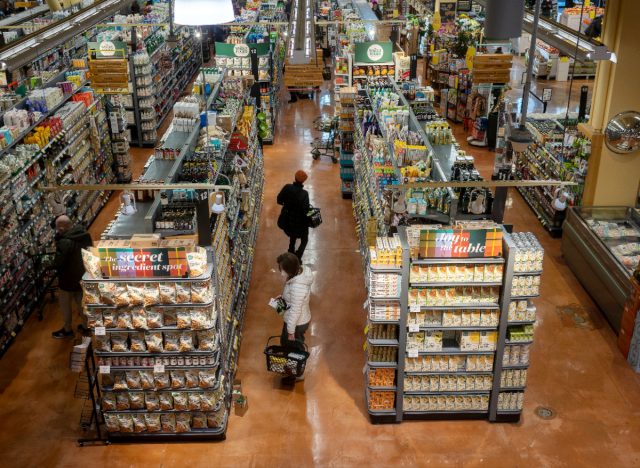
Consumer Reports tested several containers, wrappers, cups, and other packaging from Whole Foods as part of the report, and six out of eight came back with small amounts of PFAS. A container for soup was the highest with just above 20 ppm. Both the bakery cup for a muffin and baking sheet was found to not have any PFAS.
Back in 2018, the company vowed to stop using packaging with “forever chemicals” back in 2018 when a similar report was published by an advocacy group called Safer Chemicals, Healthy Families. It found that around two-thirds of the paper takeout containers contained high amounts of fluorine, which is a sign they were treated with PFAS, according to Progressive Grocer.
“Whole Foods Market introduced compostable containers to reduce our environmental footprint, but given new concerns about the possible presence of PFAS, we have removed all prepared foods and bakery packaging highlighted in the report,” the company said at the time.
With the most recent numbers for some of the packaging found at the grocery store below 20 ppm, it seems like the grocery chain is keeping its promise.
Kroger
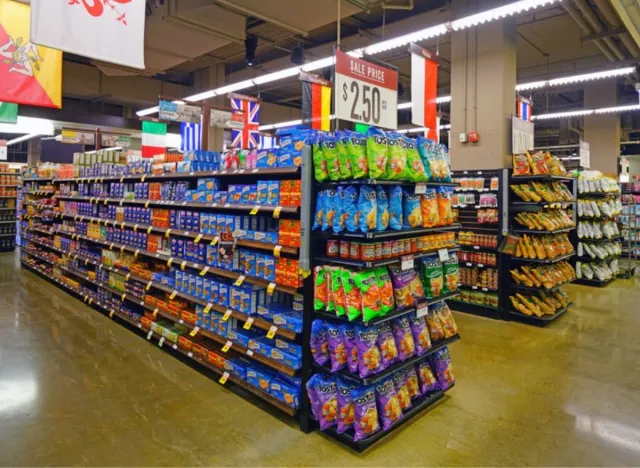
Kroger was another grocery chain with four items tested in the report. Two packaging materials—baking cups and a tray for take-and-bake double pepperoni pizza—showed PFAS present. The pizza tray had 15 ppm of PFAS, but the baking cups went 30 ppm above 20.
Trader Joe’s
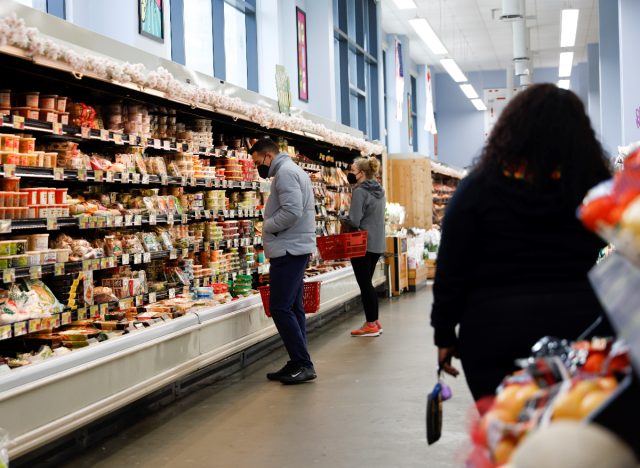
Consumer Reports tested the packaging on seven Trader Joe’s items, with three testing for PFAS. Two contained less than 13 ppm, but one—the bakery box of pancake bread—contained 167 ppm. That is above the 100 pm level California is banning next year and considered a very harmful amount. It’s around the same number of PFAS as a bag of chicken nuggets from Burger King, or a paper bag for chips at Taco Bell.
Like Whole Foods, the grocery store chain said it would stop the use of PFAS in its containers and other wrappings back in 2018. “Trader Joe’s is asking its vendors to avoid the use of Per- and polyfluoroalkyl substances (PFAS) in packaging for our products. In addition, Trader Joe’s does not have food bars or delis, so takeout food containers are typically not found in our stores,” a spokesperson told the Safer Chemicals, Healthy Families organization after their report at the time.
Eat This, Not That! has reached out to the company for more information.
Stop & Shop
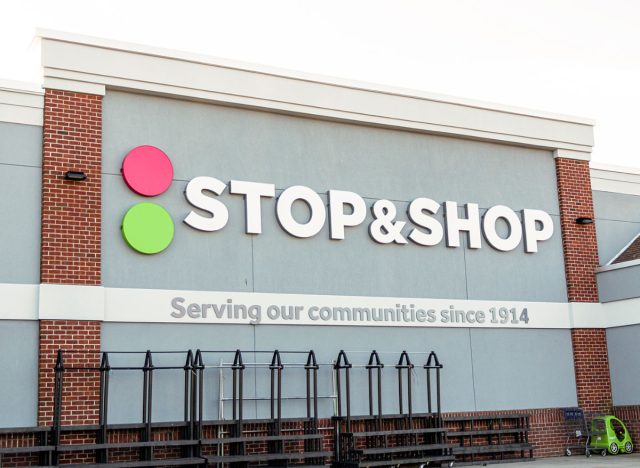
Lastly, Stop & Shop was shown to have two products containing high levels of PFAS. The grease-resistant paper plates contain over 226 ppm of PFAS and the bamboo paper plates contain over 368—the highest of any supermarket item.
In a response to the report, the company said to Eat This, Not That! that the plates are no longer available to buy. “Stop & Shop can confirm that the Nature’s Promise brand plates cited in this Consumer Report have been removed from shelves at all store locations,” a spokesperson for the company told us. “We stand behind the safety and quality of our private label Nature’s Promise products. Nature’s Promise paper products including our luncheon plates have no added fragrances or synthetic dyes, and no chlorine whitening.”
A tray for store-brand thin-crust extra pizza, pastel baking cups, and the bakery tray under a round cake also were found to contain PFAS. However, the amounts were smaller than 23 ppm.
These products aren’t the only ones to watch out for. Here are 12 Pantry Staples to Always Leave on Grocery Store Shelves.